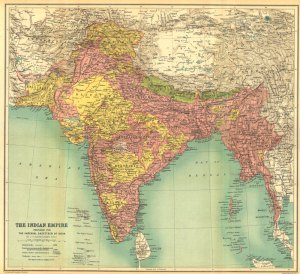 “Ceylon, off the coast of India. The 1920s. A tea plantation.”
“Ceylon, off the coast of India. The 1920s. A tea plantation.”
So begins the description of The Tea Planter’s Wife by Dinah Jefferies. Also known as: hook, line, and sinker.
I was not only intrigued by the setting of this book but also the hope of learning more about tea. (It is, after all, my favorite form of caffeination—second only to the latte.) Everything from the time period to the setting and the promise of tea-making made me itch with anticipation for how Jefferies’ plot would begin, manifest, and unfurl.
However, what began as intrigue and hopeful interest quickly turned into a combination of both annoyance and applause for Gwendolyn, the namesake’s “tea planter’s wife.” My conflict was real, and the book itself an amalgam of proper withholding and naïveté.
For more on The Tea Planter’s Wife, published by Broadway Books in 2015, continue…
Life goes on, she thought. God knows how, but it does, somehow. And she hoped that one day, maybe, if she was very lucky, she might find a way to forgive herself.
 Ceylon, the tear-drop off the coast of India, is modern-day Sri Lanka.
Ceylon, the tear-drop off the coast of India, is modern-day Sri Lanka.
Gwendolyn is nineteen at the outset, having just arrived in Ceylon via boat to meet her husband, Laurence, a thirty seven year old widower and tea plantation owner. To say she is naive would be the understatement of the novel. She and I could not be more different, in fact, which led to some internal struggle for me throughout the book. Where Gwen is quiet and protective of the status quo, I am direct and in dire need of solutions.
As the novel progresses, she moves to the plantation and begins to understand the culture. The Tamil and Sinhalese comprise both the tea plantation workers and the servants of her household. Gwen does not understand these dynamics, as she is England born and bred, but she certainly does not share the same easiness for certain humans being subservient to others. (That said, she does not necessarily advocate for them as quickly and aggressively as a woman of another time period would. Gwen is nothing if not hesitant.)
Throughout the novel, readers experience aforementioned culture dynamics; family strife, seen here with the spinster sister that will not move away; past loves, losses, and the ways in which they never fully leave you; and the assumptions all make—so often based on cultural bias—that can ultimately wreck one’s life.
This novel is successful in its incredible recreation of setting and time period. Gwen is a perfect symbol for most women of the time, quiet and demure, and Ceylon itself is a hotbed of unrest. Following the years 1925-1934, Jefferies organically provides a wide swath of history: the economic prowess of the twenties, the heartbreak of the stock market crash, the advertising industry’s genesis of the early thirties, and the international use of human capitol.*
The most successful aspect, however, is Jefferies’ investigation of the lengths to which individuals will go to protect their identities. Poignant not only in the masks one will wear to others but—most especially—the masks one fashions for him or herself. Secrets abound in this novel, and even though I spent half of it internally screaming “JUST TELL THE TRUTH ALREADY, FOR THE LOVE OF GOD,” I am glad, by the end, that it was withheld. Again, it is a perfect time piece of what would have likely happened at that time.
The fact that I was mentally straining in I-would-have-done-this-differently fashion is testament to my own time period some eighty years after Gwen’s. I have the privilege of all those who’ve come before me, all the growth in-between.
I recommend this book to any reader looking for a glimpse into another life, another setting, and another time period. Prepare to be annoyed by naïveté but rewarded with insight into human behavior. Prepare to become aware of the lengths to which you yourself may delve to keep secrets that ultimately only benefit others… as we all do.
I received a free advanced reader copy of this book via Blogging for Books in exchange for an honest review. I’d like to note that I do not usually read books like this but I was pleasantly surprised.*
Advertisements Share this:






